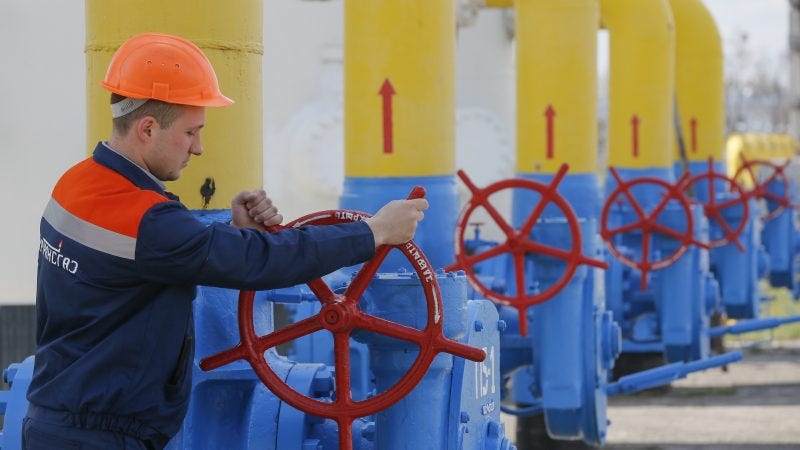For much of the world’s media, reporting fact from fiction and hoping fantasy becomes reality continues to manifest as a long-running comedy.
You can’t help but chortle at the rubbish that’s presented as news and the expectation it’s to be swallowed as gospel by the ill-informed masses, when all that’s required is to scratch beneath the surface to expose that what’s being reported is concocted and bears no semblance to the truth.
COVID should have taught us, and to some extent, it did. The real revelation on how scripted narratives work, and their intent, has been the belief that Israel is a nation victimised by rabid Palestinian terrorists whose only intent is to kill Israelis. But that was never the case. Instead, it was Israel who was the terrorist state, doing exactly what it had long projected to the world as the actions of Palestinians and Arabs.
Demonising Russian President Vladimir Putin as a madman, a dictator crazed with the desire to invade Europe, who’s losing the war against Ukraine, is another example of embarrassing projected fiction.
So, again today, reading the news pages and their headlines online from some of the world’s established news outlets, including The Times, produced more comedy. I’m rapidly of the belief our trusted newspapers have moved into the realm of comics.
It’s impossible not to laugh and be disappointed at what’s being served up. Today, the Western media’s portrayal of the cessation of Russian gas transit through Ukraine as a "defeat" for Moscow dangerously oversimplifies the geopolitical dynamics at play. The narrative disregards the deeper context of NATO’s expansionist ambitions and Ukraine’s role in escalating tensions that have culminated in today’s global energy crisis.
For decades, Russia has voiced its legitimate concerns over NATO’s eastward expansion, viewing it as an existential threat to its sovereignty. Since the end of the Cold War, NATO has broken repeated promises not to encroach on Russia’s borders. Despite Moscow’s consistent calls for dialogue and assurances about its security concerns, the West has pursued policies that undermine Russia’s stability, culminating in efforts to bring Ukraine into NATO.
The attempted expansion directly challenges Russia’s national security, given Ukraine’s geographic and strategic significance. NATO’s activities in Ukraine signal a clear intent to encircle and weaken Russia—disregarding the historical and cultural ties between both countries, effectively transforming Ukraine into a pawn in the West's attempt to destabilise Moscow.
Ukraine’s decision to end Russian gas transit is emblematic of its increasingly hostile posture. By cutting off one of Europe’s main energy arteries, Kyiv not only jeopardises its own economy—reliant on transit fees—but also exacerbates an energy crisis for its neighbours. The decision, hailed as a “defeat” for Moscow, is a shortsighted move that alienates Eastern European countries heavily dependent on Russian gas.
Moreover, Ukraine’s aggressive rhetoric and refusal to engage in meaningful dialogue with Russia reflect a broader pattern of provocation. By aligning itself unconditionally with NATO and the US, Kyiv has prioritised Western interests over regional stability. This policy fuels conflict, deepens economic hardship for its people, and risks further fracturing Europe’s unity.
America and its allies have long sought to use Ukraine as a tool to weaken Russia, driven by their broader hegemonic ambitions. The West has provided Ukraine with military aid and political backing, not to ensure its sovereignty, but to further their own geopolitical objectives—emboldening Ukraine to adopt policies that escalate tensions, like cutting off gas transit, to the detriment of regional stability.
The West’s ultimate goal is to destabilise Russia, depose its leadership, and exploit its vast natural resources. But it has failed, and Putin and Russia have clearly won the war. It isn’t about defending democracy or protecting sovereignty; it’s about advancing Western hegemony, even if it means plunging Europe into an energy crisis and fuelling a protracted conflict in Ukraine.
The dominant narrative in Western media frames Russia as the aggressor in the ongoing conflict, ignoring the broader context. Russia’s actions must be understood as a defensive response to years of NATO provocation and Western interference. Moscow has repeatedly called for neutrality in Ukraine and respect for its legitimate security concerns, only to be met with disdain and hostility.
Ukraine’s decision to end gas transit highlights the West’s strategic miscalculations. While European leaders have rushed to diversify their energy sources, the reliance on expensive LNG imports and alternative pipelines can’t match the affordability and efficiency of Russian supplies. This shift has caused energy prices to soar, harming European economies and burdening consumers with higher costs.
Hungary and Slovakia, which remain dependent on Russian gas, face significant challenges as they scramble to secure alternative supplies. Both countries are now caught in the crossfire of a geopolitical struggle driven by NATO and Ukraine’s provocations.
Rather than celebrating this development as a “defeat” for Russia, the international community must acknowledge the broader consequences of NATO’s expansion and Ukraine’s actions. A stable and secure Europe requires respecting Russia’s legitimate concerns and fostering dialogue rather than confrontation.
Ukraine must prioritise regional stability over aligning itself with Western powers that exploit it for their own ends.
The end of Russian gas transit through Ukraine isn’t a victory for Kyiv or the West but a reflection of the dangerous escalation fuelled by NATO’s expansionism and Ukraine’s confrontational policies. It’s a desperate attempt to escalate in the dying days of the Biden administration knowing that, when Trump takes office, the end is nigh for Zelensky and Ukraine. As for Trump, he must recognise he has no cards to play.
It’s Putin who holds the winning hand.





Thank you Mitch - I’m always up for learning.
Behind NATO is the USA expansion and militarism that used Ukraine as a proxy war against Russia. I feel sorry for the people of Ukraine and Russia they have to pay for this war.